By 2100, the rise in mean sea level will cause the coastline to exceed the place where the road now exists, at Praia de Faro, and that the Ancão Peninsula is submerged in case of floods. In Quarteira, the water will touch the first buildings and reach the second line of buildings, in bad days.
These are just two examples of the impacts of climate change in the Algarve, but they show how deep the region's adaptation will have to be, in some cases. It was with this path in mind that AMAL – Algarve Intermunicipal Community commissioned the Intermunicipal Plan for Adaptation to Climate Change, which was presented yesterday, April 4, at the University of Algarve's Campus das Gambelas, in Faro.
The preparation of the plan involved renowned academics, under the scientific and executive coordination of Luís Dias and the non-executive coordination of Filipe Duarte Santos, one of the greatest European experts on climate change, but also technicians from the Algarve's municipalities, as well as environmental and regional associations.
More than analyzing the region's weaknesses and projecting what the impacts of climate change will be, the document points out paths for adaptation and measures that should be taken, some of them now, to mitigate the effects of the changes that are approaching.
As explained to the Sul Informação Luís Dias, on the sidelines of the plan's presentation session, “there are three main concerns: the rise in mean sea level, the rise in temperature, which will lead to extreme events, such as heat waves, and water availability”.
The rise in mean sea level is a long-term problem, but it is, at the same time, the one that causes the most concerns for those living in coastal areas and provides the toughest adaptation paths.
«The first approach, apart from one or another specific case, seems to be the artificial feeding of beaches. But in the medium term this feeding could become excessively expensive. And at that time, a cost/benefit analysis of the measures will have to be made, namely if it pays to continue putting sand or there are other better solutions, such as the construction of walls or even the relocation of some houses», explained the plan's coordinator.
“The retreat of the housing line is a hypothesis. We will reach a time when it is cheaper to relocate than to continue putting sand», he reinforced.
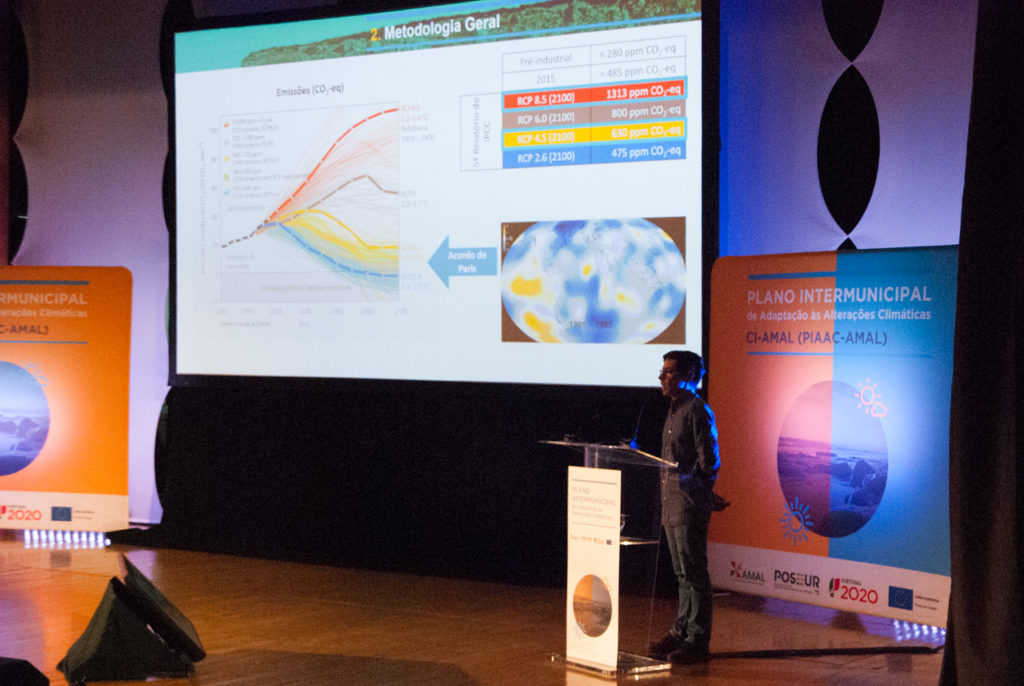
Even because, explained Luís Dias, the rise in the average sea level is a phenomenon «which tends to be exponential. Initially, the ascent is relatively slow, but then it starts to climb faster and faster».
On the other hand, it is necessary to count on the latency period of this phenomenon. “Even if we stop emitting, if emissions become zero, the average sea level continues to rise for decades, before stabilizing and eventually starting to retreat. In other words, it is a very long-term impact».
The effects of sea level rise – which, in the worst case analyzed in the study, could be a meter, until 2100 – will still take some time to be felt, at least in strength, but there are effects of climate change that are already well present.
And the one in which it is necessary to start working now, to take care of the future, is that of water availability.
“There is a lot that can go forward now. With regard to water resources, what was more or less outlined is that an effort would be made in everything related to the reduction of losses in the networks, so that there is a more effective and concerted fight, as well as more financial availability , to face this goal», explained the coordinator of the plan.
Another proposal of the plan is the reuse of wastewater, «which is something that has been talked about for many years in relation to the Algarve», a measure that, in Luís Dias' view, «could bring benefits to the region».
Filipe Duarte Santos, who also spoke with Sul Informação, does not hesitate to say that “one of the main problems is the water issue”.
“Water availability will decrease. The Algarve has some aquifers that are very resilient, such as Querença-Silves, but the fact is that the average annual rainfall is decreasing, some aquifers have been used beyond their sustainability and their waters are becoming saline and , in some cases, polluted», he said.
This means that “we have to find other water availability. We have to follow the example of other countries in the Mediterranean region, which is an area particularly vulnerable to climate change, like Spain, Italy and Israel, which are countries that already reuse urban wastewater”.
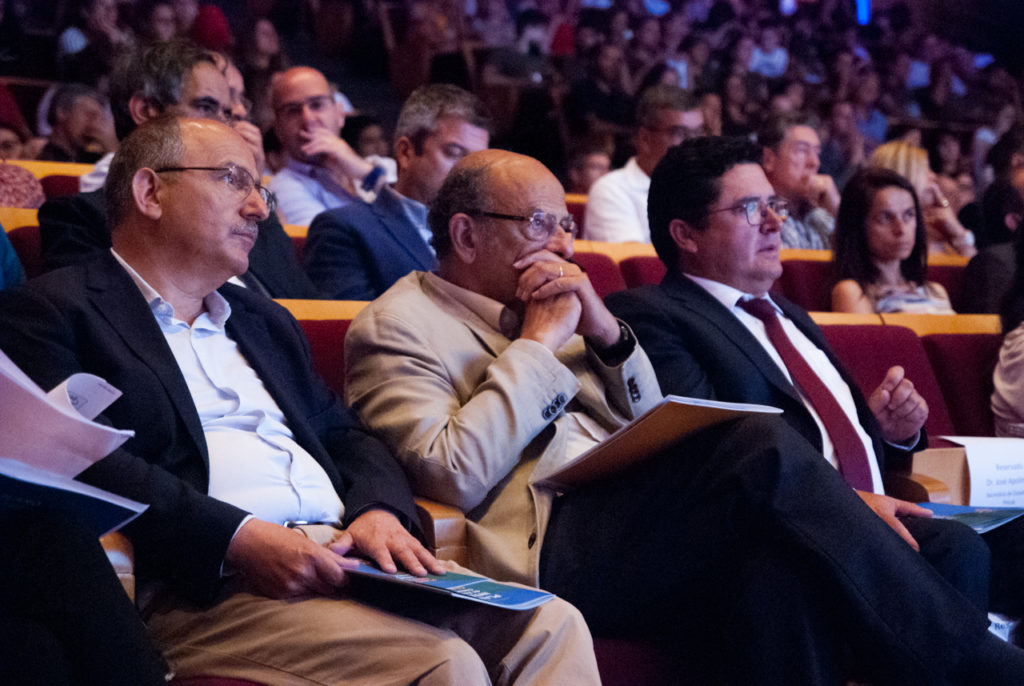
For this renowned expert, “it is important that there is legislation that allows for the reuse of these wastewaters with tertiary treatment. But this law will have to be simple to apply and have the adhesion of farmers, citizens, companies, organizations and Chambers».
After all, what consumes the most water in the Algarve and Alentejo is irrigated agriculture, so it is necessary to be pragmatic and “make enforceable laws that are easy to implement, as is happening in other countries. In Spain, 17% of the water used in irrigation is treated urban waste water. In Portugal, it does not reach 2% and there is no fundamental reason why we cannot do the same».
“This water is already being reused to wash streets and water golf courses. Now, it is necessary to move to agriculture and make use of irrigation. But it is different to water an intensive olive grove or avocado pear with waste water – which is something that is very profitable here in the Algarve and there is great pressure to develop – or to be irrigating, for example, lettuce. We have to learn from other countries that are already more advanced than us in these practices», added Filipe Duarte Santos.
The legislation requested by the Portuguese specialist in climate change is already on the Government's agenda, namely the Environment Minister, assured journalists, however, by the Minister of Maritime Ana Paula Vitorino, who attended yesterday's session to present the plan.
Still in the field of water availability, the plan's authors suggest “the creation of water retention landscapes, which are very relevant, as they combine different approaches so that water is retained and not lost at sea”.
Although the work contemplates the possibility of building a new dam in the Algarve, Luís Dias points out that this is «not quite what this is all about, as these are always very heavy infrastructures».
“A good strategy is to create artificial lakes, as they not only retain water but also promote its infiltration into the aquifer. Here in the Algarve, there were already many dams in the mountains, whose recovery would be an asset to face the impacts of climate change», revealed the plan's coordinator.
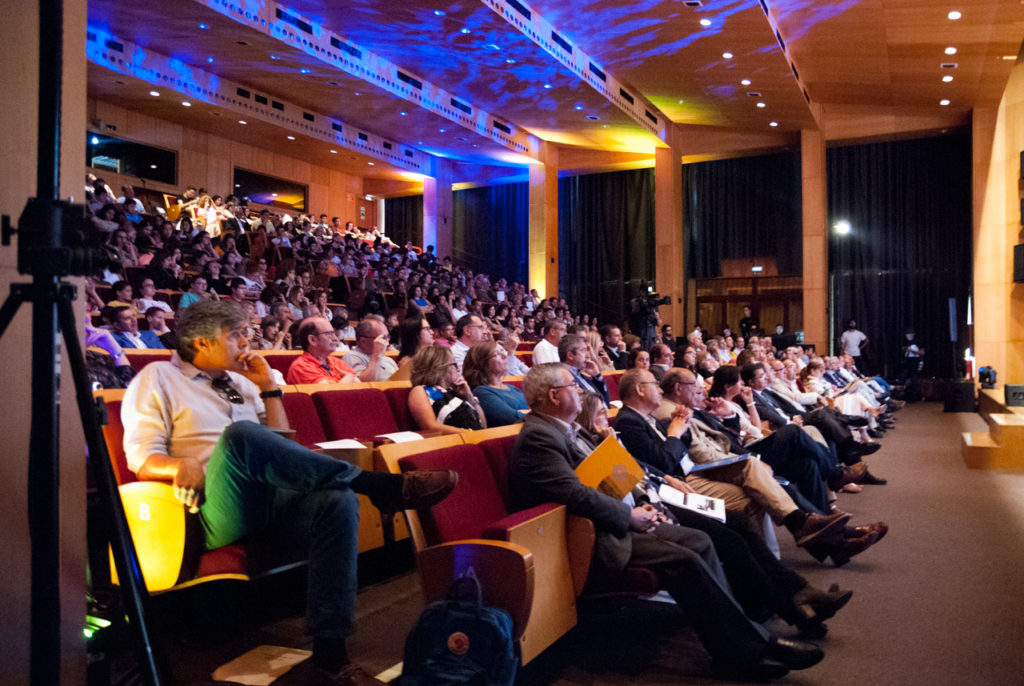
Also “pressing”, in the view of Filipe Duarte Santos, is the problem of forests and forest fires. “In Monchique, there was a return of fire in the mountains with an interval of only 15 years. There was a very big fire in 2003 and there was another one last year. The forest cannot withstand systematic 15-year return periods.
It will degrade and more invasive species will appear. This is another very strong challenge that we have, for the future and for the present».
In this field, the authors of the plan take advantage of the “a lot of work” that has already been done, “namely by the working groups that were formed following the great fires. In this field, we do not supersede what they propose».
«What we do is to raise awareness of other issues, namely a more diversified landscape, the use of animals to eat the bush and agro-forestry-pastoral techniques», explained Luís Dias.
Once the plan was made and the technicians from the municipalities involved, who were called to participate in working sessions with the authors of the plan and have been an important part of this process, the ball is in the side of the political decision-makers.
And, assured the Sul Informação Jorge Botelho, president of AMAL, the desire of the mayors of the region «is to start doing things right now».
"The next step is to deliver the plan to the Government and we want the concerns expressed here to be considered in the institutions' future budgets and in the context of the 2020-30 community support framework, which is now under discussion," he said.
Jorge Botelho recalled that adapting to climate change is one of the Government's priorities, with which the Algarve's municipalities are "completely aligned".
«The fact that we are pioneers at a national level in the elaboration of this inter-municipal plan puts us one step ahead», believes Jorge Botelho, who warns that the necessary financial effort cannot come exclusively from local and regional institutions.
Photos: Rodrigo Damasceno |Sul Informação
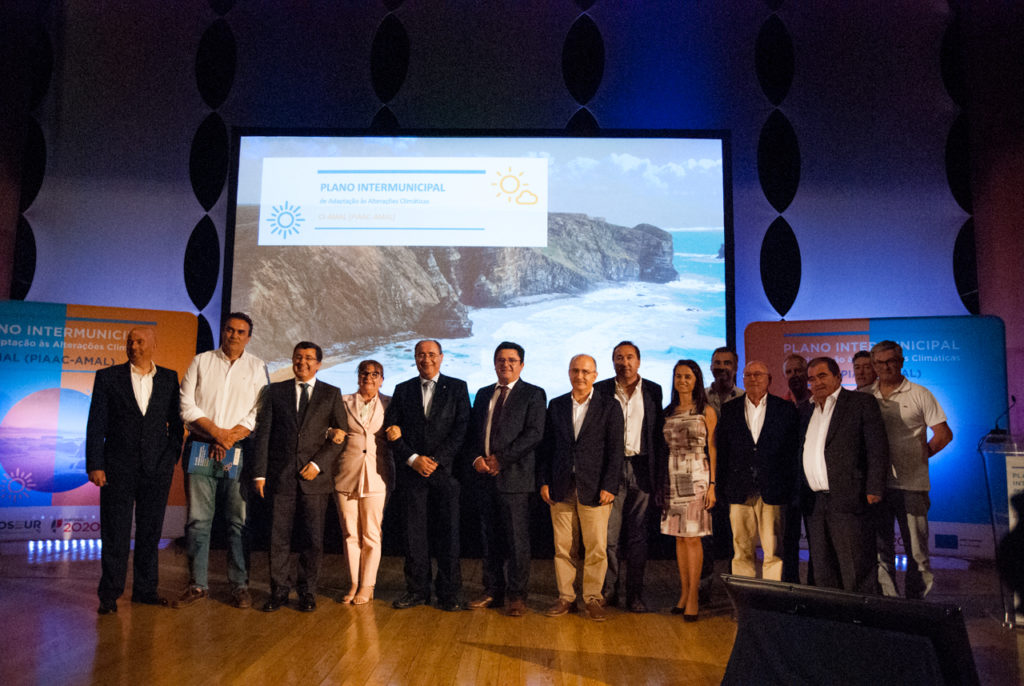
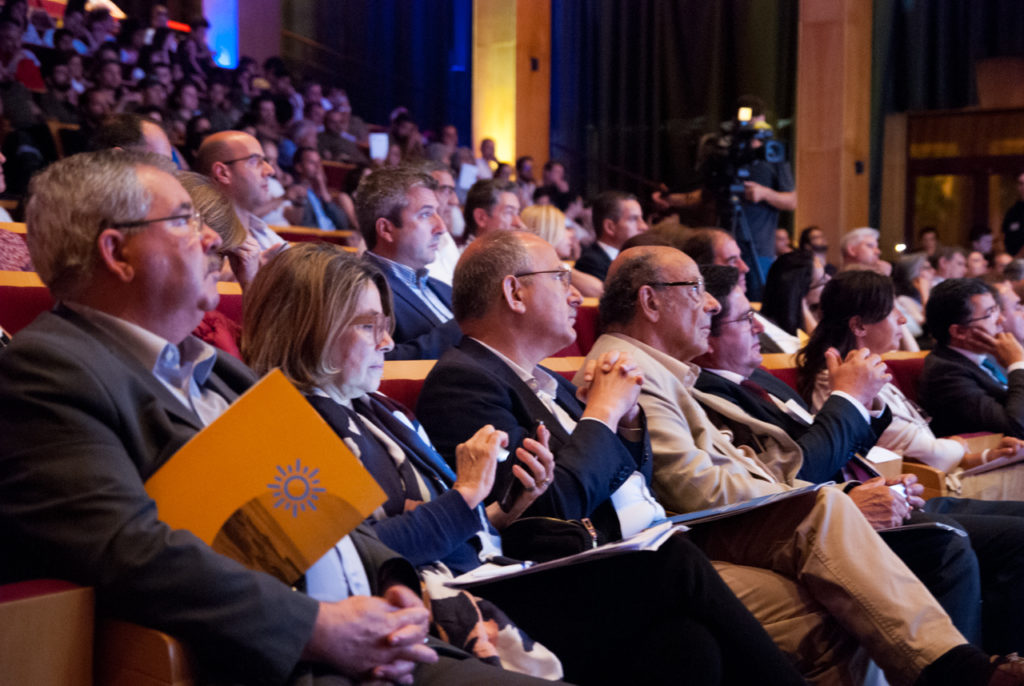
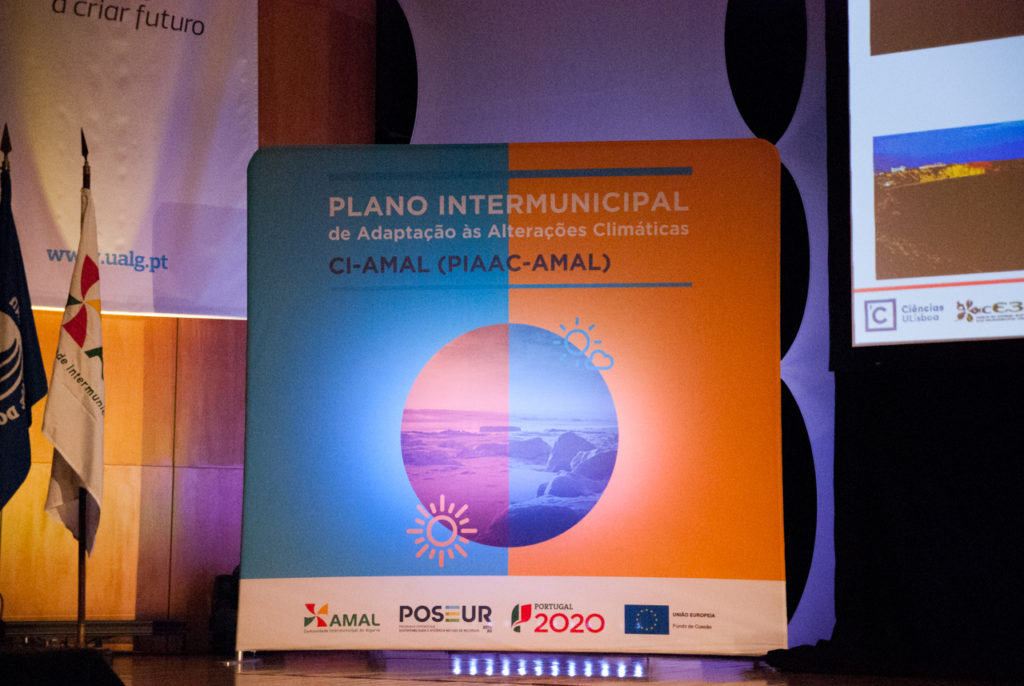
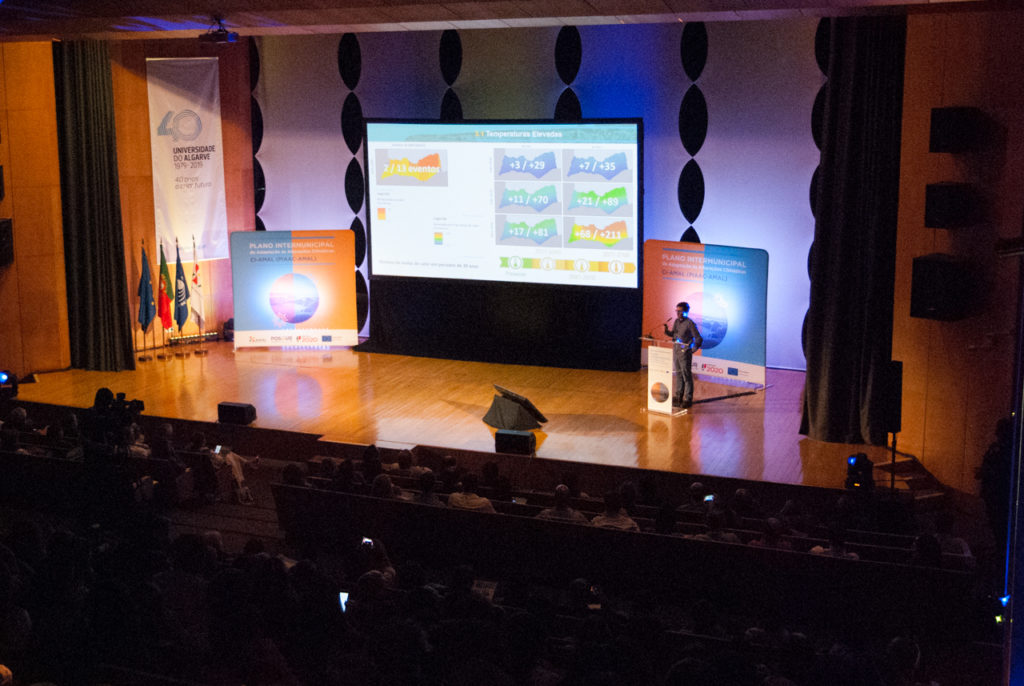
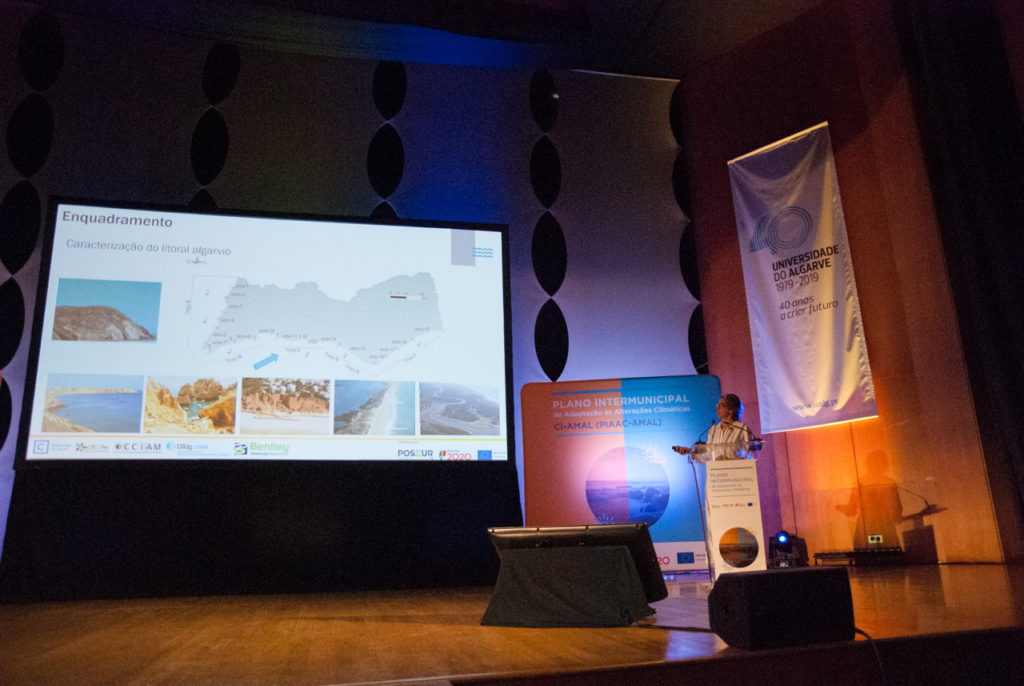
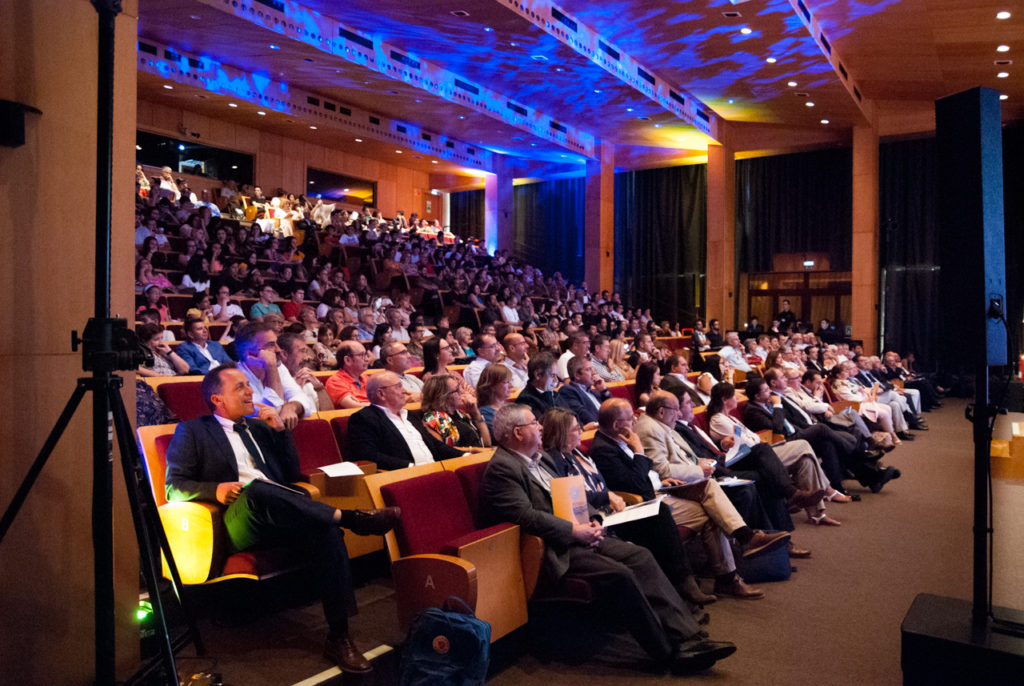
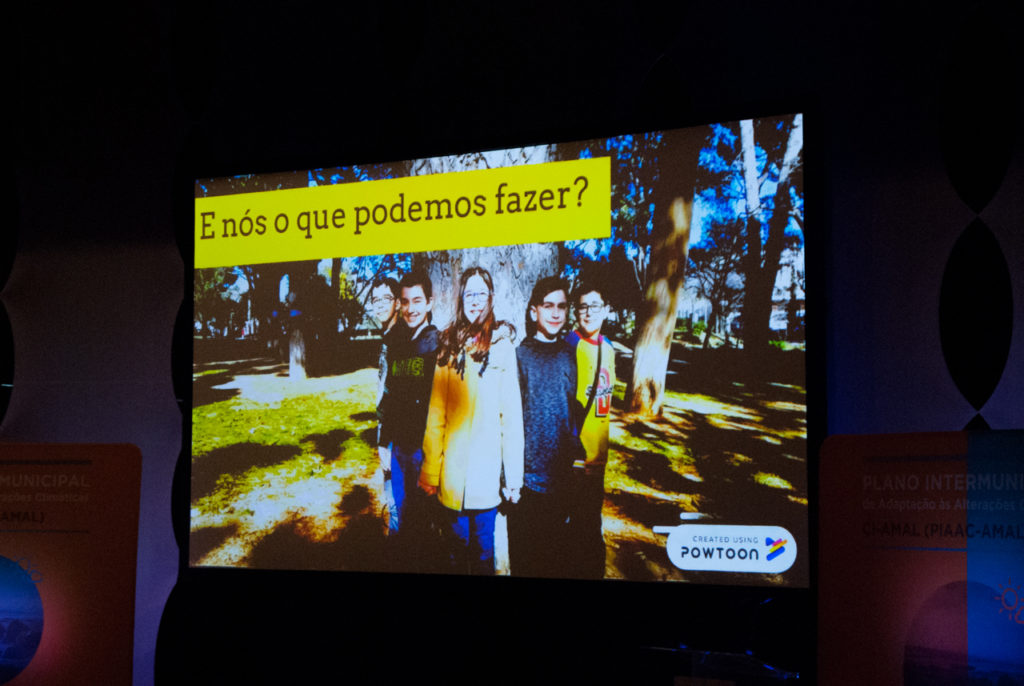
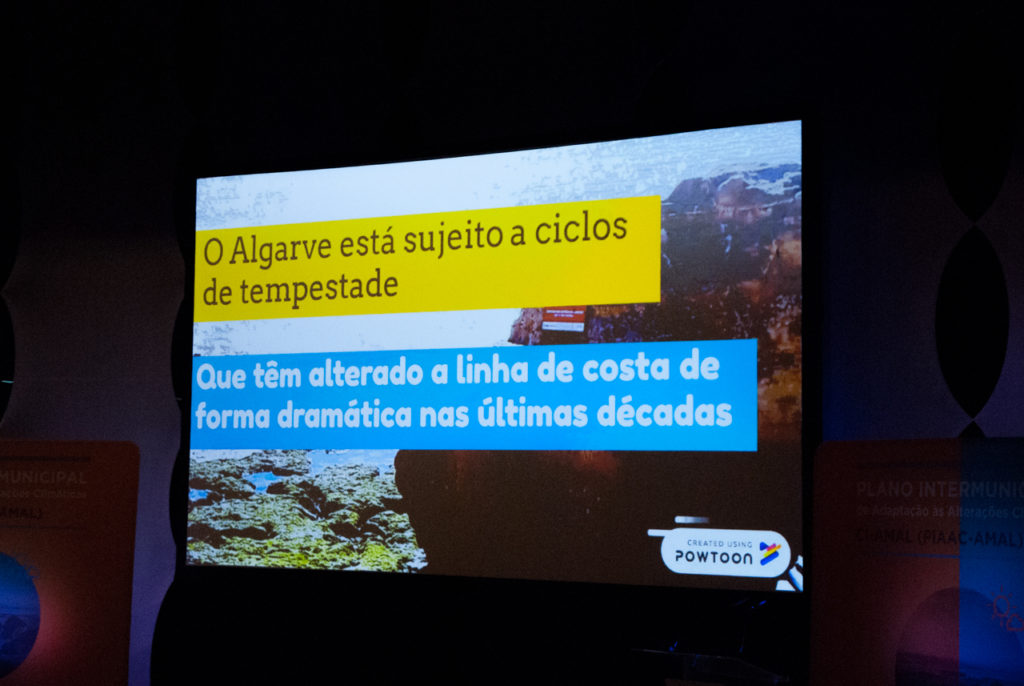
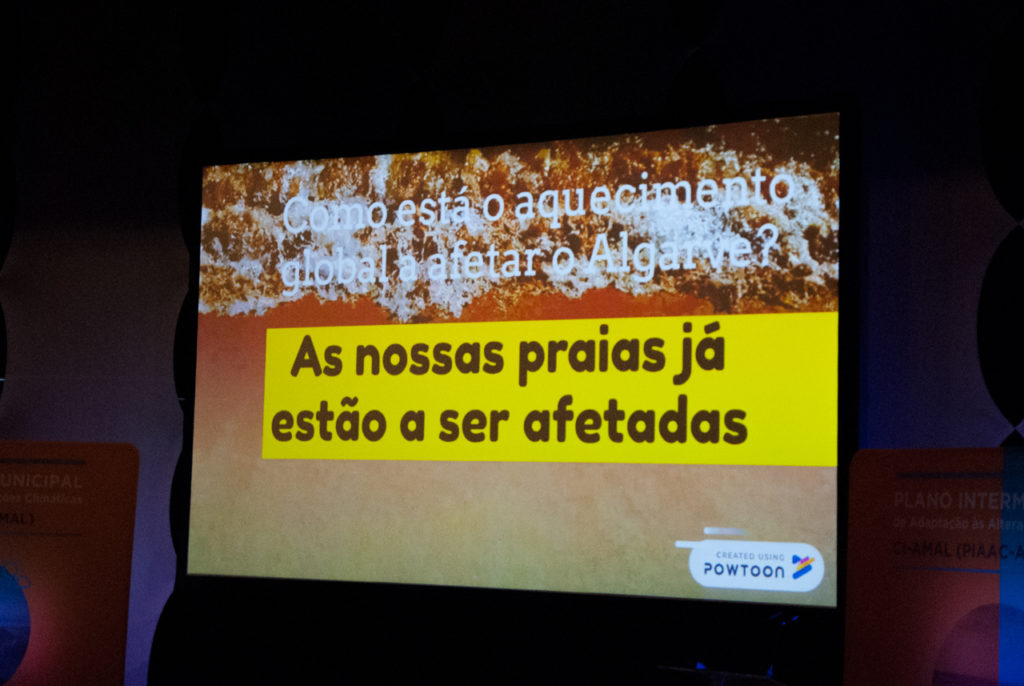
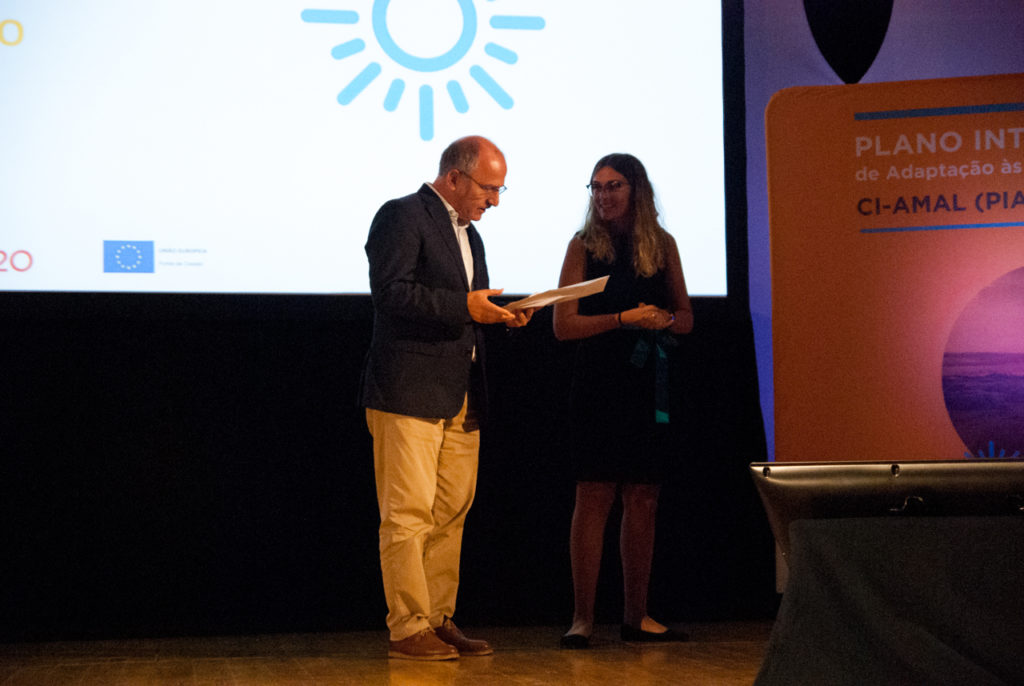
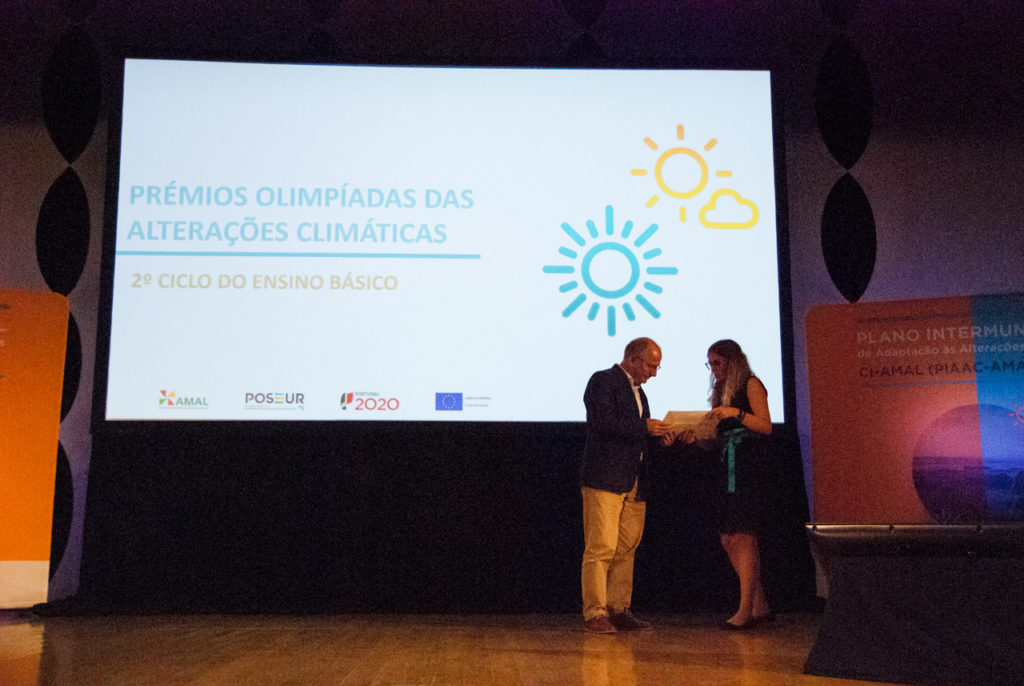
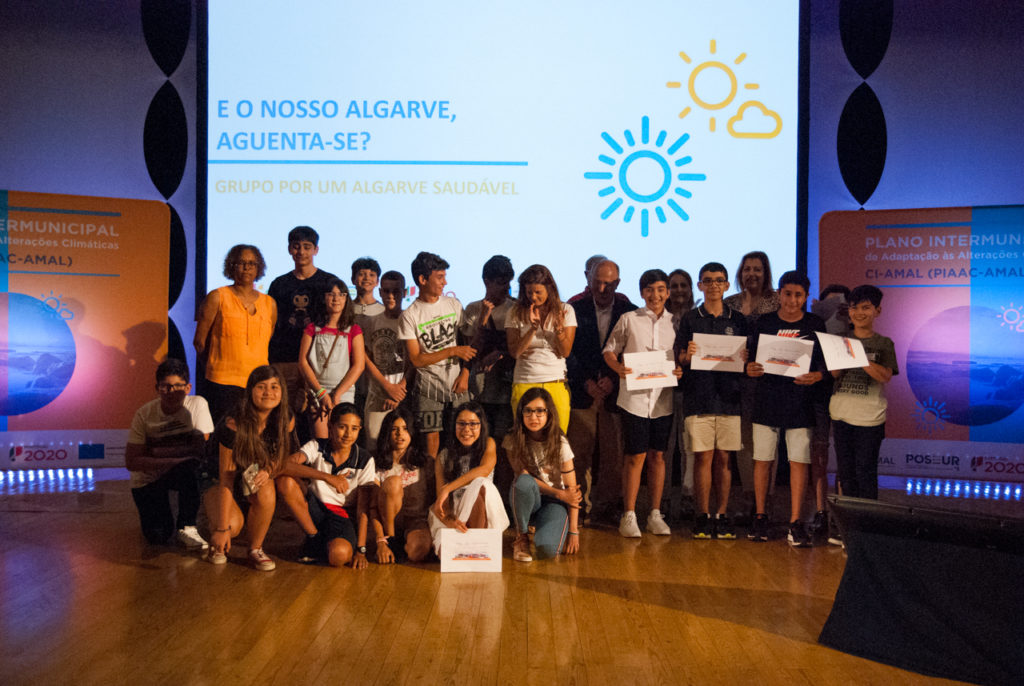
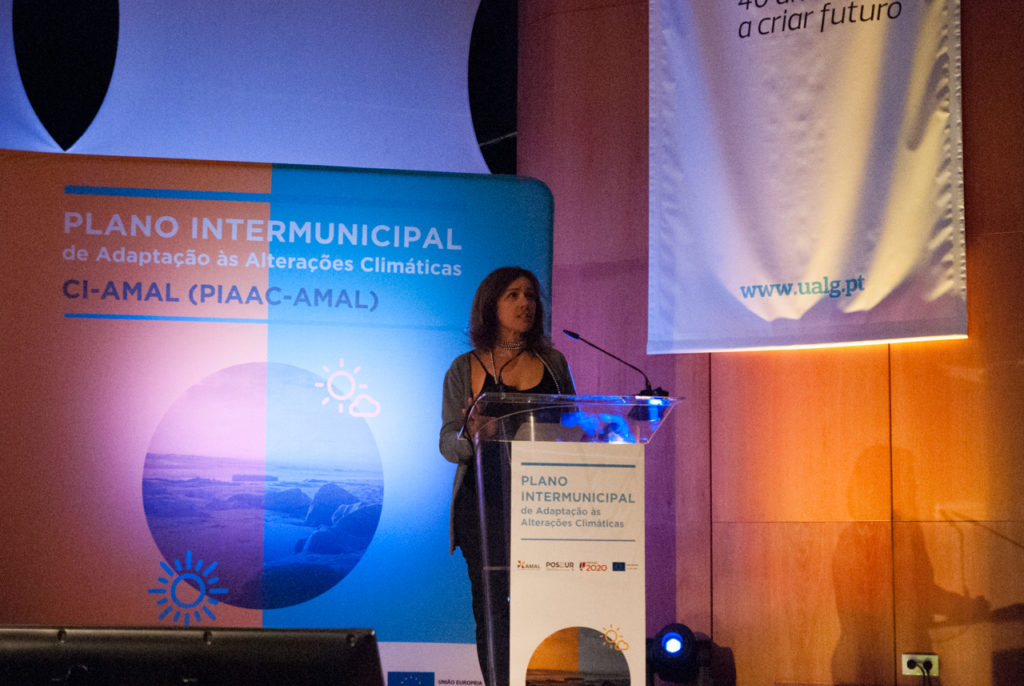

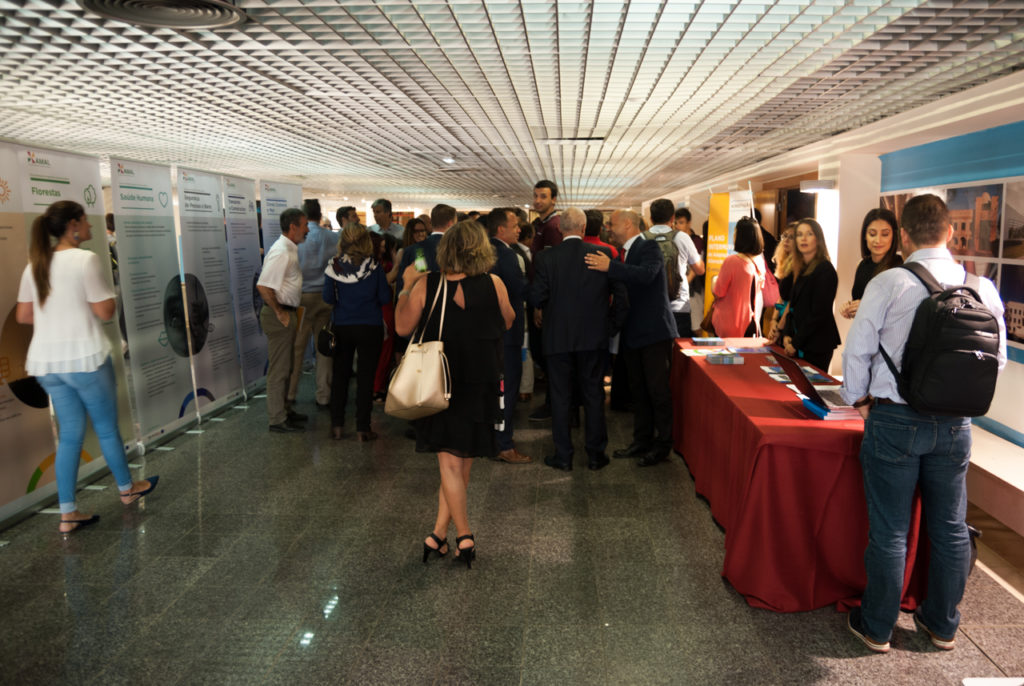
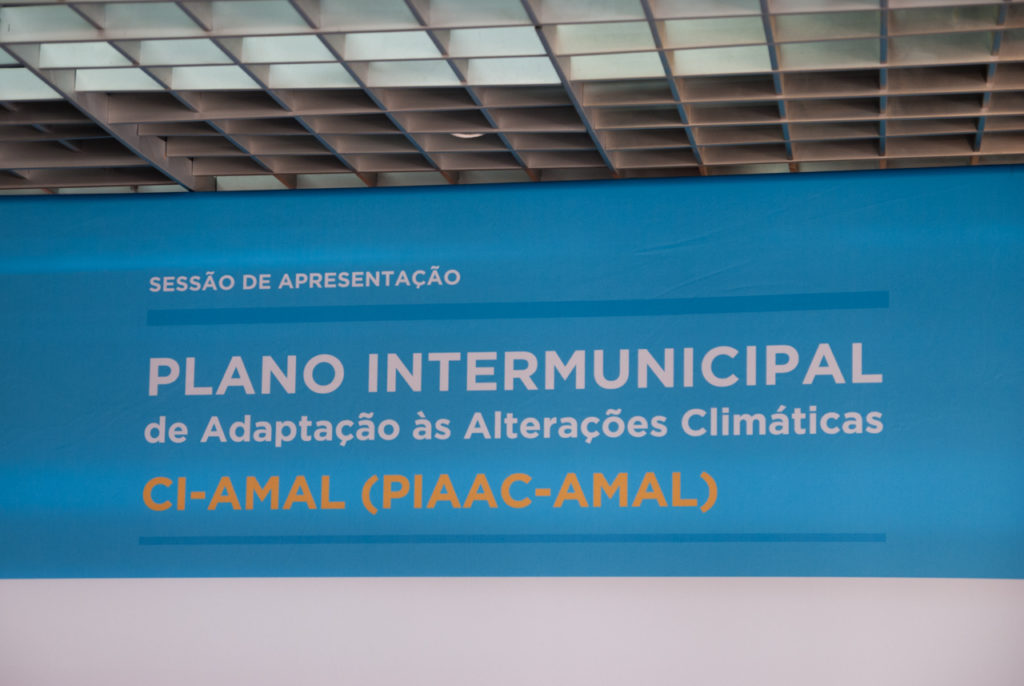

















Comments